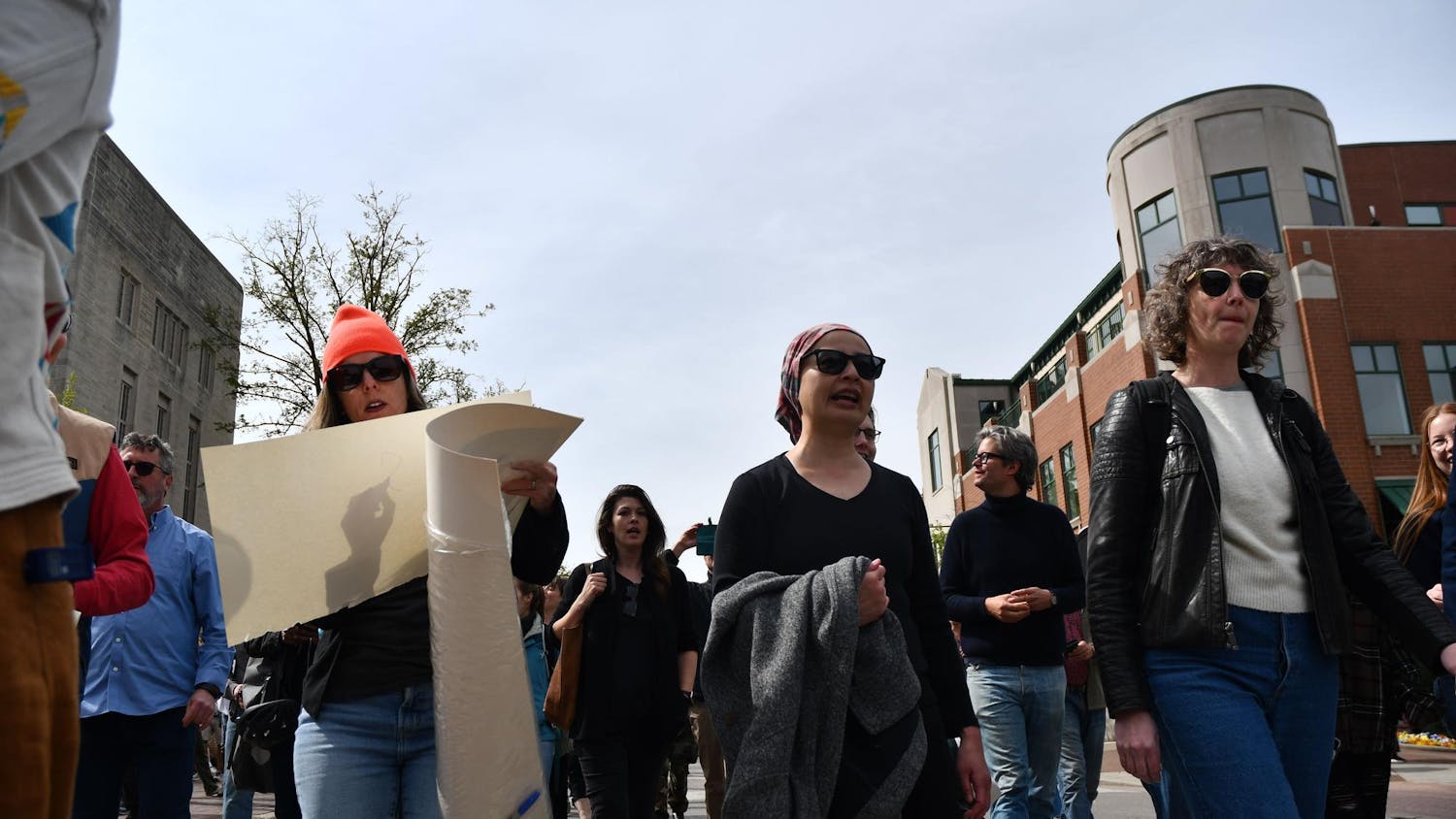Students and faculty of the Jacobs School of Music came together this past summer to produce the music for this year’s “Fulfilling the Promise” video, a commercial produced by the University.
Directed by Angelo Pizzo, this year’s video focuses on the story of Michael Uslan, IU alumnus and producer of the Batman movies. Both 30-second and 60-second versions were created, and music by Jacobs students and faculty was featured.
Konrad Strauss, chair of the department of Audio Engineering and Sound Production, said he was contacted by the producer of the commercial with the idea a few months ago.
Strauss then went to Thomas Wieligman, administrator of Instrumental Ensembles, to ask if the project was logistically possible during the summer when there are fewer students on campus.
“Getting an orchestra together at a specific date to do a recording is ot an easy task,” he said.
Next, Strauss went to David Dzubay, chair of the Department of Composition, and asked him which students would be around to be able to write and arrange this music.
Eventually, graduate student Ari Fisher was chosen. Fisher, who studies music composition, had worked on film composition projects, including the 2014 “Fulfilling the Promise” video, several video game scores and short films. He is the recipient of the Jon Vickers Film Scoring Award for his score for “The Return of Draw Egan” and also won the commission to score the 1922 silent version of “David Copperfield.”
“I’ve always wanted to write a superhero march kind of thing. It’s really exciting, super engaging, all this driving music,” Fisher said.
The next task was to secure the venue and to decide a date that would work for all involved. The chosen date gave Fisher a week to compose the music.
Fisher said the tight deadline was a norm.
“Sometimes you just have to jump in,” he said. “That’s just how it is.”
Fisher said a challenge he faced was a particular measure in the music that called for a transition from slow, dark and ominous music to a huge march. To overcome this challenge he said he listened to music written by his favorite composers.
Fisher got a workable cut of the visual the day before the scheduled recording session, which meant he had only a day to work on the orchestration of the music.
“Needless to say, I didn’t get any sleep that night,” Fisher said. “But not just because I was working, but also because after I finished, I was too excited. It’s not everyday a composer gets to work with a seventy-piece orchestra. It’s kind of like an honor and a blessing to us that we get to have that kind of an opportunity.”
Fisher finally finished his task of the recording, and the music was ready to be printed with two and a half hours to spare.
“The spot was written so it was very playable,” Strauss said. “While it’s impressive and it’s big and it’s orchestral and exciting, it’s very idiomatic for the instruments, so everyone was able to play it.”
Strauss said the musicians had two hours to learn, rehearse and record the music. Strauss said recording sessions are quite different from live performances in various ways.
“There’s no audience, but there’s also an expectation of perfection of performance,” Strauss said. “There are very high standards and a certain amount of pressure, but, also, this was a very realistic professional experience because the musicians did not see the music until they came to the recording session that day.”
Strauss said although generally he would like to involve his students in post-production work, he worked on post-production alone because the project was done during the summer and the deadline was so tight.
“I’m hopeful that it will be done again because I think it is a wonderful collaboration,” he said.
Fisher said what he loves about composing music is that everyone sees it differently.
“The way someone hears one sound is heard differently by another person,” Fisher said. “But the end-all, be-all effect is that they will have some kind of response. They will have some kind of emotional response.”




